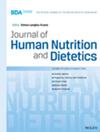A qualitative exploration of barriers, facilitators and best practices for implementing environmental sustainability standards and reducing food waste in veterans affairs hospitals
Abstract
Background
To improve the healthfulness of foods offered while accelerating the use of environmental sustainability practices, it is important to engage hospital food service operators in the adoption of such practices. The purpose of this study was to explore barriers, facilitators and best practices for implementing environmental sustainability standards in food service among veterans affairs (VA) hospitals in the United States.
Methods
We conducted an online survey with 14 VA hospital food service directors and then 11 qualitative interviews. The survey assessed motivations for initiating sustainability standards and included a self-rating of implementation for each of five standards: increasing plant-forward dishes, procuring and serving sustainable foods that meet organic/fair trade and other certifications, procuring and serving locally produced foods, reducing food waste and reducing energy consumption. Interviews were transcribed verbatim. Qualitative analysis, including coding of themes and subthemes, was conducted by two coders to determine barriers, facilitators and best practices for each of these five standards. Quantitative methods (counts and frequencies) were used to analyse the survey data.
Results
Participants had an average of 5 years of experience implementing sustainability standards. The top three motivators cited were reducing food waste, serving healthier foods and increasing efficiency or cost savings. Barriers revolved around patient preferences, contractual difficulties and costs related to reducing waste. Facilitators included taste testing new recipes that include more sustainable food options and easy access to sustainable products from the prime vendor. Best practices included making familiar dishes plant-forward and plate waste studies to prevent overproduction.
Conclusions
Although there were many barriers to implementation, food service directors had solutions for overcoming challenges and implementing food service sustainability standards, which can be tested in future sustainability initiatives.

 求助内容:
求助内容: 应助结果提醒方式:
应助结果提醒方式:


